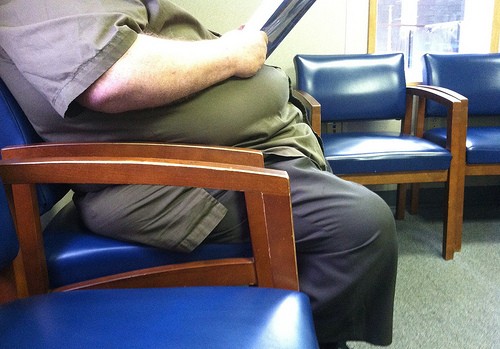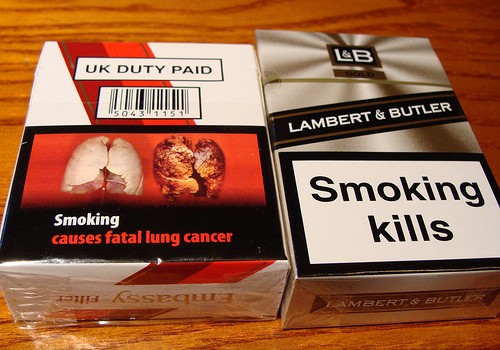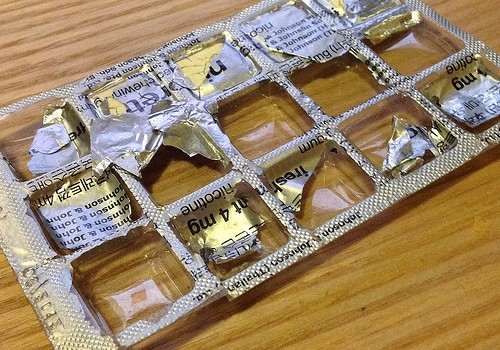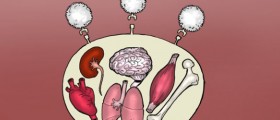
Obesity Reversibly Linked With Impaired Immunity
Obesity has been linked for some time with a higher rate of infections and increased risk of certain types of cancer. But for a while the reason for the association was not fully understood. It is now known that obesity is associated with poor functioning of the immune system, in particular white cells called lymphocytes. The good news is that the effects of obesity on the immune system seem to be reversible. In other words, if obese individuals lose weight they can expect to see an improvement in functioning of their immune system. As a result they should experience fewer infections and lower their risk of certain types of cancer. There is also a strong association between obesity and the modern ‘epidemic’ of type 2 diabetes. It is well-documented that people with diabetes have lowered immunity and experience more infections than non-diabetic people. This can be particularly important if they have wounds, such as occur to the feet in people with diabetes.
- Important notification about information and brand names used in this slideshow!
- farm9.staticflickr.com/8349/8217443844_b5f22644ba.jpg
- Tanaka S et al. Int J Obes Relat Metab Disord. 1993,17(11), 631-6
- www.diabetesmonitor.com/education-center/diabetes-basics/elevated-blood-sugars-increase-risks-for-infections.htm

Fast Food May Reduce Immunity And Sabotage Childhood Vaccinations
It has been alleged that foods high in sugar and fat, as in typical fast food, reduces the immune system’s effectiveness. They are also associated with obesity and diabetes, both of which are known to reduce our immunity. In addition, chemicals called PFCs (perfluorinated compounds) have been accused of sabotaging the response of children to vaccinations. These compounds are used in non-stick cookware and fast food packaging and because of their widespread use all Americans have detectable levels of them in their blood. So babies can be exposed to them before birth via their mothers, and after birth through the environment. Childhood vaccinations stimulate the production of antibodies in the child’s blood and this is used as a measure of how effective the vaccination has been – whether it has ‘taken’ or not. Animal studies have shown that high concentrations of PFCs reduce antibody response to vaccination. In a study of children, those with higher levels of three important PFCs had less than half the normal antibody response to vaccination. As well as leaving these children susceptible to infection it will increase the ‘pool’ of infection in communities, leading to childhood infections becoming much more common.
- Important notification about information and brand names used in this slideshow!
- farm1.staticflickr.com/20/71209263_86307f4026.jpg
- www.webmd.com/cold-and-flu/10-immune-system-busters-boosters
- www.medicalnewstoday.com/articles/240761.php

Sugary Foods Reduce Ability To Fight Infection
Foods which are high in sugar have been shown to reduce the ability of cells in our immune systems to fight off bacterial infections. Drinking as little as two 12oz sodas has been credited with having this effect, which can last for up to two hours following the drink. Regular consumption of sugary foods, especially sugar-sweetened sodas has been strongly associated with the development of type 2 diabetes. This is a metabolic disorder with wide-ranging effects all over the body. One of these is suppression of the immune system, rendering people with diabetes less able to fight off infections, which would be transient in someone with a fully competent immune system.
- Important notification about information and brand names used in this slideshow!
- farm5.staticflickr.com/4048/5156634643_14b0373196.jpg
- www.webmd.com/cold-and-flu/10-immune-system-busters-boosters

Lung Disease Is Not The Only Risk From Smoking
Smoking has been associated with a number of adverse effects on the immune system. Not only does it reduce the numbers of white cells, but smoking also makes them less effective and interferes with the chemical signalling between immune cells. Smoking is also known to have effects on autoimmune diseases. These are conditions where the immune system behaves abnormally, attacking proteins normally found in the body and causing disease. Smoking has been shown to worsen three of these conditions – Goodpasture’s syndrome, Graves’ disease and rheumatoid arthritis. By suppressing the immune system it is thought that smoking may also cause some autoimmune diseases – by removing the normal ‘tolerance’ of antibody-producing cells to the body’s own proteins. As with lung cancer, it is likely that smoking causes these diseases in people who have a predisposition to them already. But most smokers will not know if they run that risk or not – until it’s too late.
- Important notification about information and brand names used in this slideshow!
- farm4.staticflickr.com/3445/3749520362_efda39d4a1.jpg
- //onlinelibrary.wiley.com/doi/10.1046/j.1365-3083.1997.d01-366.x/pdf

Alcohol Abuse Is Associated With Infections Like TB And Cancer
It has been found that alcohol has profound and multiple effects on the immune system. It is widely documented that alcoholics suffer more with bacterial infections such as tuberculosis, than the rest of the population. It is thought that the effects of alcohol on the immune system may also make people more vulnerable to becoming infected with HIV, and developing AIDS, and also cancer. Some of the effects of alcohol on immunity are seen in chronic (long-term) alcohol abuse, while others occur in both chronic and acute (short-term) abuse eg after an alcoholic ‘binge’. In chronic abuse, alcohol can stimulate the immune system and cells in the liver attract white cells in such great numbers that they damage the organ and prevent it from working properly. This causes a condition known as alcoholic hepatitis (inflammation of the liver). After an alcoholic binge, the immune system tends to be suppressed, so that fewer white cells are produced in response to injury, or invasion by bacteria or viruses. This makes someone more susceptible to infection, and less able to fight it off.
- Important notification about information and brand names used in this slideshow!
- farm9.staticflickr.com/8062/8235221642_866eb14d1e_c.jpg
- www.pubs.niaaa.nih.gov/publications/arh21-1/30.pdf

Bad Relationships Can Lead To Bad Health
Marital unhappiness and difficulties in relationships at home have been shown to affect a number of infectious illnesses such as herpes simplex and flu, through suppression of the immune system. Some conditions will occur more frequently, or last longer or the symptoms will be made worse by being stressed. Stress can even affect how quickly you respond (seroconvert) to a vaccination. Short-term stress though can actually boost part of the immune system, helping us respond to immediate threat – known as ‘fight or flight’. In this kind of situation the part known as cellular immunity becomes more active, preparing to deal with the aftermath of injury. But long-term stress such as experienced in an unhappy relationship, will tend to affect all parts of the immune system, making us more susceptible to acquiring infections and less able to get rid of them. As with smoking, an example is tuberculosis which occurs more often when people face long-term stressful situations.
- Important notification about information and brand names used in this slideshow!
- farm8.staticflickr.com/7210/6936947929_999fcfa4b7_z.jpg
- www.ncbi.nlm.nih.gov/pmc/articles/PMC358318/pdf/cmr00031-0068.pdf
- www.ncbi.nlm.nih.gov/pmc/articles/PMC1361287/

Medication May Lower Your Immunity As Well As Your Cholesterol
A number of drugs are designed to suppress the immune system. These include drugs to treat autoimmune diseases, such as rheumatoid arthritis and to prevent rejection after organ transplant. Many anti-cancer drugs also reduce the immune system as a side effect. But other more commonly-used drugs can suppress immunity. These include steroids which are anti-inflammatory drugs used to treat a variety of complaints from allergies to asthma. But some people abuse them by taking anabolic steroids for building muscle, and expose themselves to reduced immunity as a result. Other drugs have also been reported as suppressing immunity. These include proton pump inhibitors (PPIs) given for acid reflux and peptic ulcer disease – people taking them have a 30% higher risk of developing pneumonia. Another study found that organ transplant recipients who took statins did better than those who did not, leading the researchers to conclude that they are effective immune suppressants. But for most of us they are prescribed to reduce cholesterol – not our immunity!
- Important notification about information and brand names used in this slideshow!
- farm9.staticflickr.com/8087/8398300707_7740d4ee93.jpg
- www.virginiahopkinstestkits.com/drugsthatharmlungs.html

Depression Affects Immunity More As We Age
A number of studies have concluded that depression has an adverse effect on immunity, leading to increased risk of infections. It has been found that the older we are, the stronger the effect of depression on the immune system. The effect is on the number of white cells, but also their potency in combating challenges to the system. There also appears to be a link between severity of depression and the degree of effect on the immune system. A confounding factor to studies of the relationship between depression and immunity is that depressed people often have poor lifestyles with regard to diet, exercise, alcohol consumption and smoking - all of which can affect the immune system.
- Important notification about information and brand names used in this slideshow!
- Flickr
- www.kungfu.psy.cmu.edu/~scohen/herbcoh1993.pdf



























Your thoughts on this
Loading...